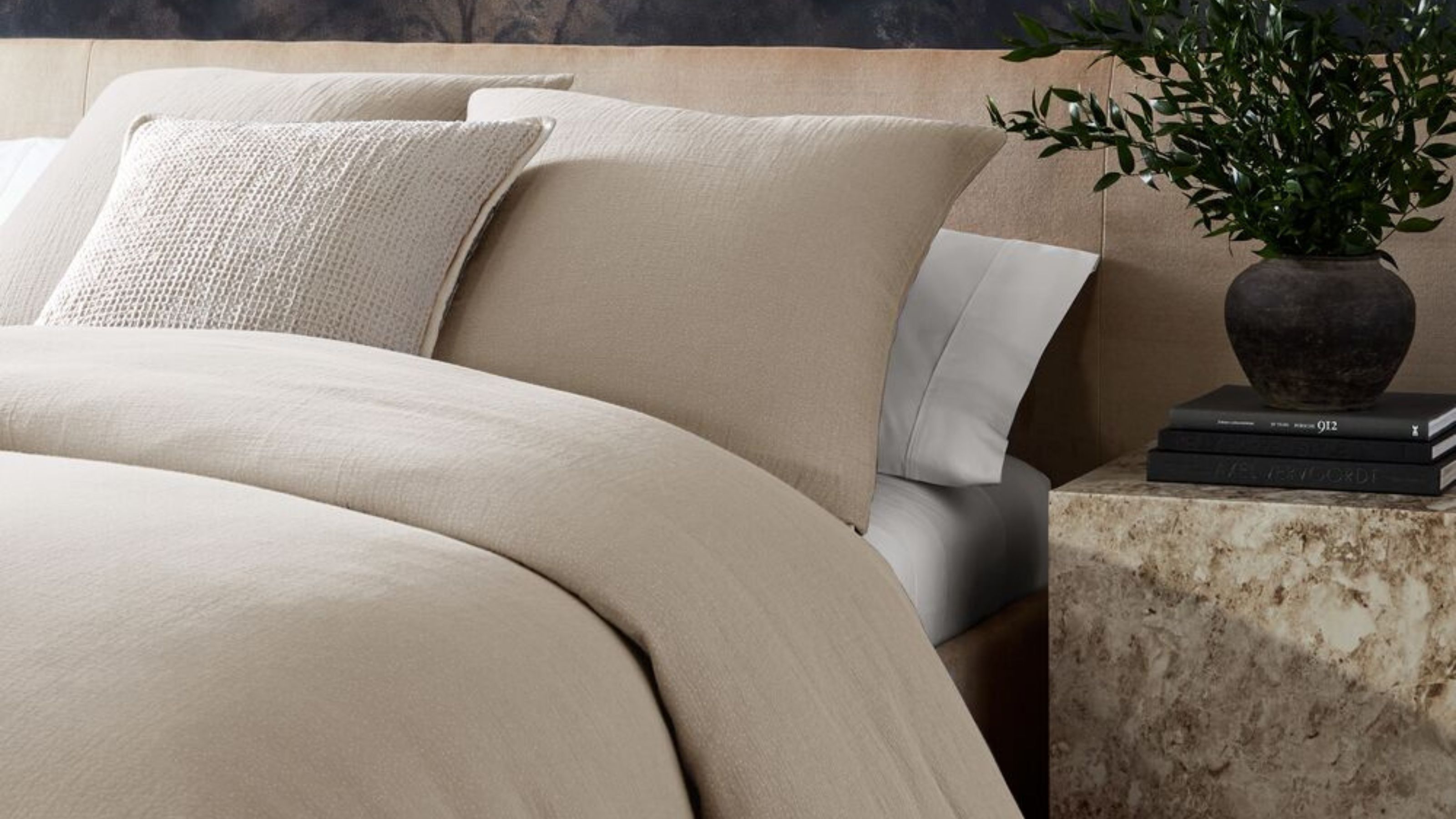
Everyone has different pillow preferences. Some love a plush pillow their head can sink into, and others adore a flat pillow that gives just enough lift. But is it better to sleep without a pillow?
Pillows are designed to keep your head, neck, and spine aligned for comfy sleep that reduces the risk of back and neck pain. But there is an argument that sleeping without a pillow can help with skin, hair, and sleep – with some claims that sleeping without a pillow can even alleviate neck pain. Research on the matter is limited, but there could be reason to remove your pillow from your sleep set-up.
To find out more on whether sleeping without a pillow may work for you, and your sleep needs, we've spoken to the experts. They explain that certain sleep positions make sleeping without a pillow comfier. We discuss the benefits and drawbacks below, but you should always consult a practitioner before making any changes to your pillow arrangement.
Is it better to sleep without a pillow?
Is it better to sleep without a pillow depends on your sleep style. Make sure you understand the position you sleep in before you try and sleep with, or without a pillow.
The expert's verdict
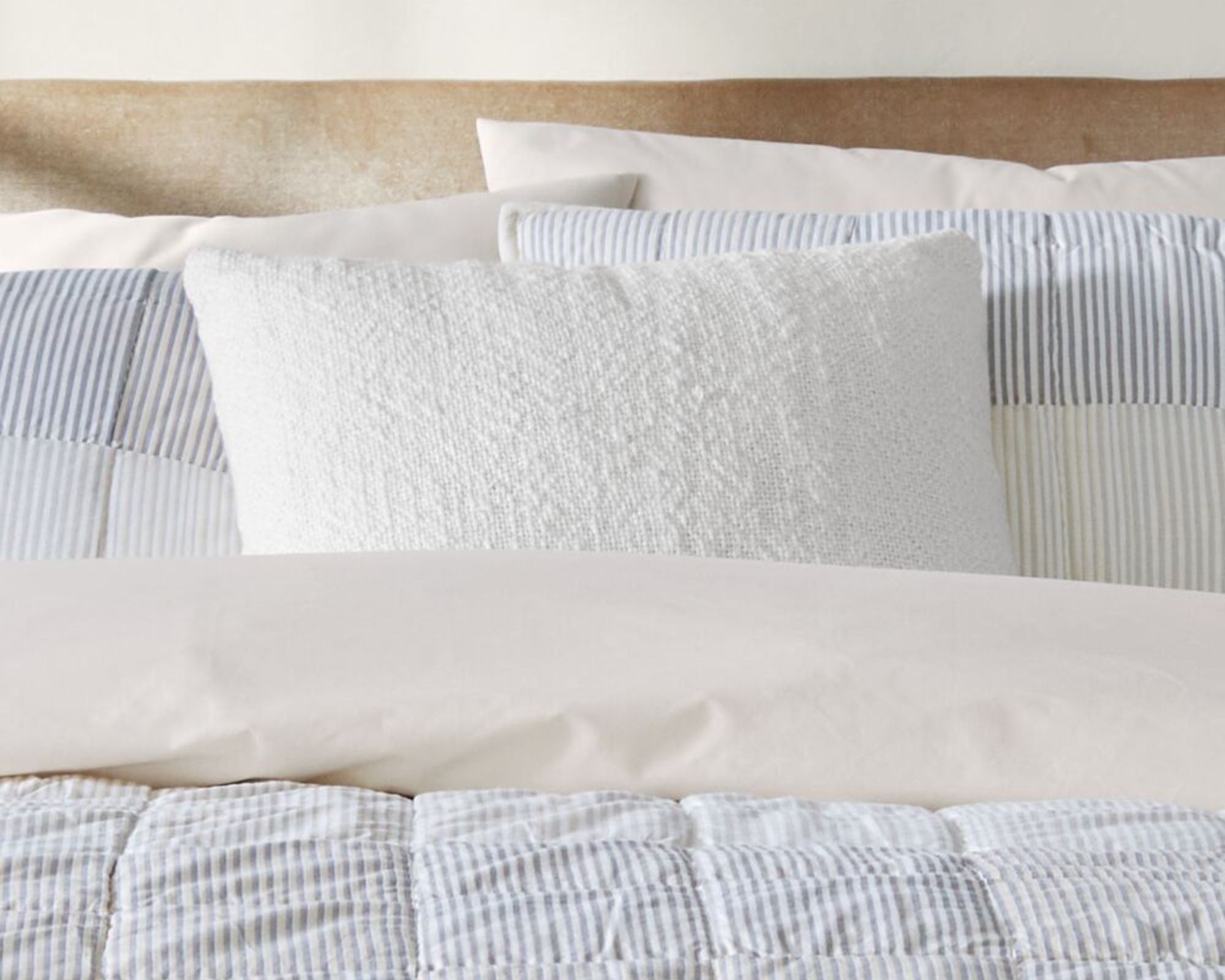
Sleeping with or without a pillow will work for you depending on your sleep style. As long as your head, neck, and spine are supported, the amount and height of pillows you sleep with doesn't matter. As Dr. Kevin Lees, director of Chiropractic Operations at The Joint Chiropractic explains, 'Just like keeping your spine in a neutral position allows your muscles to relax, your neck needs support too.' Choosing a pillow that suits your sleep position and keeps your neck at the right height is key.
Dr Lees breaks down whether sleeping without a pillow is better based on sleep style:
- Back sleepers can sleep with 'thinner pillows unless they have a larger upper back curve or hunched posture,' he explains. For this reason, it could be better for back sleepers to sleep without a pillow.
- Side sleepers will generally need a thicker pillow to 'fit the space between the bed and shoulders'. Since everyone is a different size, this is where you should ensure a pillow gives enough support to keep your neck in a natural position.
- Stomach sleepers 'may not need a pillow at all, or just a thin one' says Lees. A plush pillow may be hard on your neck as well as lower back if it lifts your head too much. In this case, it is better to sleep without a pillow.
What are the benefits of sleeping without a pillow?
The scientific backing about whether sleeping without a pillow is better is limited, but there are anecdotal reports that suggest sleeping completely flat has its benefits. There are obvious effects on posture, but some less-apparent benefits for skin, hair, and sleep.
Having a pillow can twist the neck too much of those who sleep on their stomach. Removing the pillow will actually help a stomach sleeper feel much more comfortable. Where pillows are designed to help keep your neck in the correct position when sleeping, having the wrong loft pillow could contribute to neck and back pain.
Instead, stomach sleepers may find not using a pillow relieves them of tension – a flat surface can keep the neck and head aligned when lying on your front. Back sleepers may also benefit from not having a pillow if they find the mattress is the right firmness to not allow the head to sink below the shoulders.
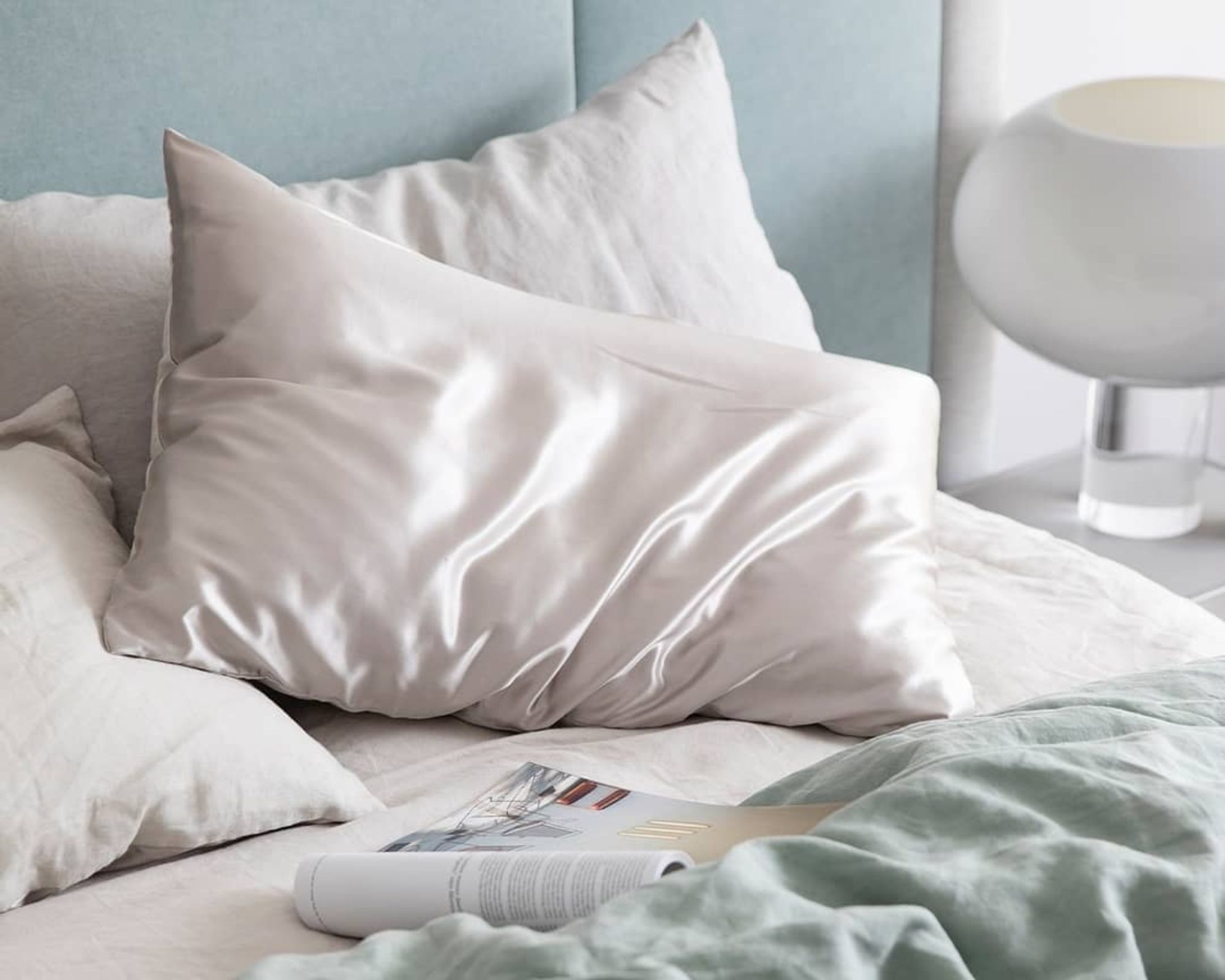
A more surprising benefit is for your skin. Sleeping on a pillow – especially one without a silk pillowcase – is known to irritate the skin. Since your face is pressed directly against it, bacteria build up and fabric friction can contribute to acne and wrinkles. If you have sensitive skin, sleeping on a pillow can inform impressions on the cheeks.
Similarly, there are claims that sleeping on a pillow can be damaging to hair. Pillowcases can absorb oils, and create friction causing breakage. If you think your pillow is paying dividends to your dry, frizzy hair, then switching to a silk pillowcase or sleeping without a pillow at all may be better for you.
The risks of sleeping without a pillow
Sleeping without a pillow can affect healthy spinal alignment if it doesn't suit your sleep style. The most common sleep position is the side, which will require a thicker pillow to lift your head and fill the gap between the bed and your shoulders. Sleeping without a pillow may overextend the neck. Bad sleep posture will ultimately disrupt sleep and lead to discomfort.
If you're already suffering from neck pain, it's important to consult a professional before changing up your sleep setup. Sleeping without a pillow can affect your spinal alignment, resulting in severe discomfort or aggravating pre-existing pain. Dr. Lees advises that 'too much or too little pillow thickness can cause your neck to curve forward, backward or even to the side. This can lead to increased stress on the joints of your neck and the muscles surrounding your neck and upper back.' Neck pain may also contribute to tension headaches and further health issues.
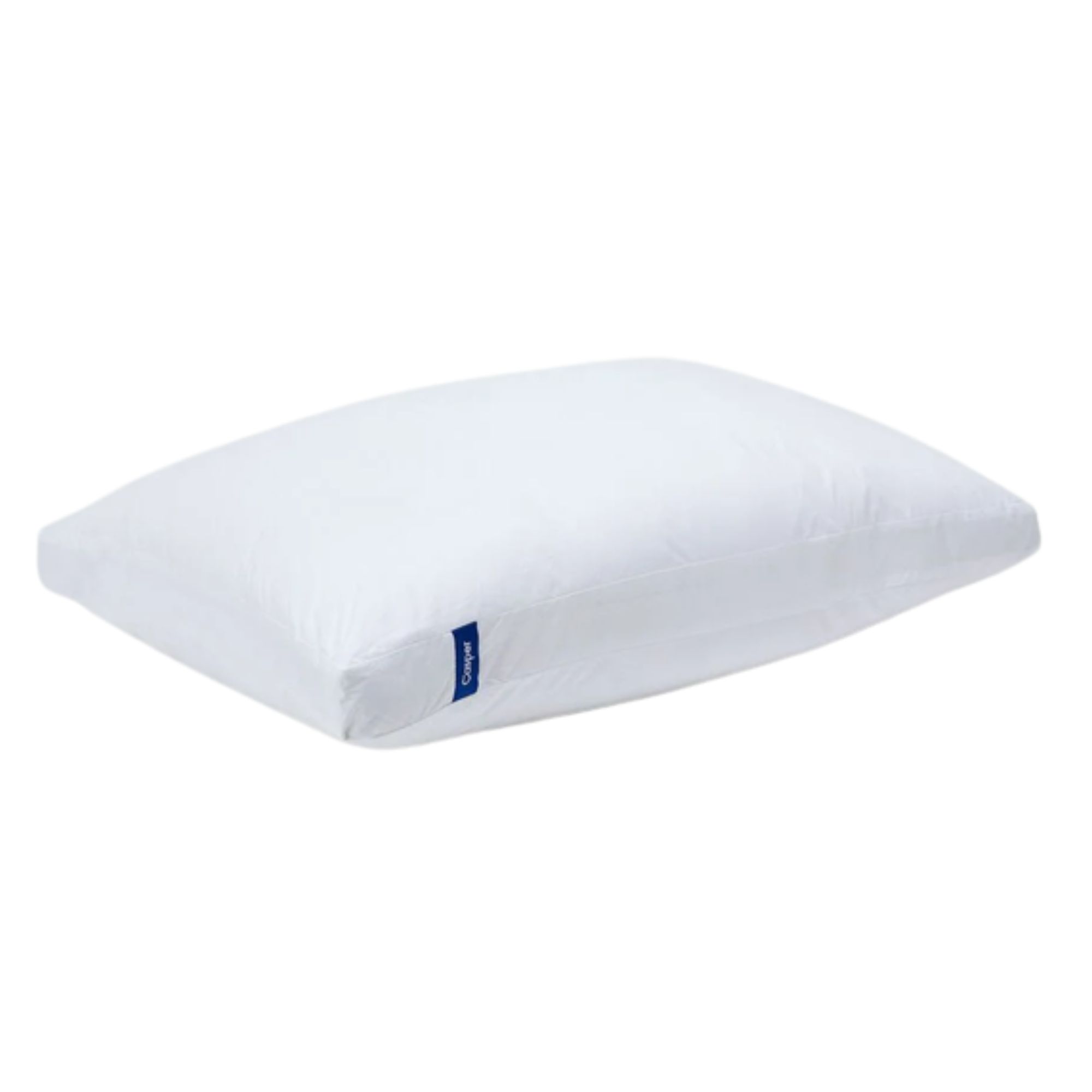
Sizes: Standard, king
Filling: Polyester down alternative
Firmness: Medium
Care: Machine washable and dryer safe
No matter your sleep style, this pillow is proven to keep people comfortable at night. It's a medium loft, not too plush, nor too flat. It'll work for side, front, and back sleepers alike. Decide you want to sleep without a pillow? Put it between your legs instead.

Size: queen, king
Filling: Memory foam
Firmness: Medium
Care: Machine wash and tumble dry
This pillow is the best for side sleepers as you can adjust it to the right height. A pillow shouldn't be a one size fits all product – add or remove the memory foam fill to find the correct loft to fill the gap between your head, shoulders, and the bed.
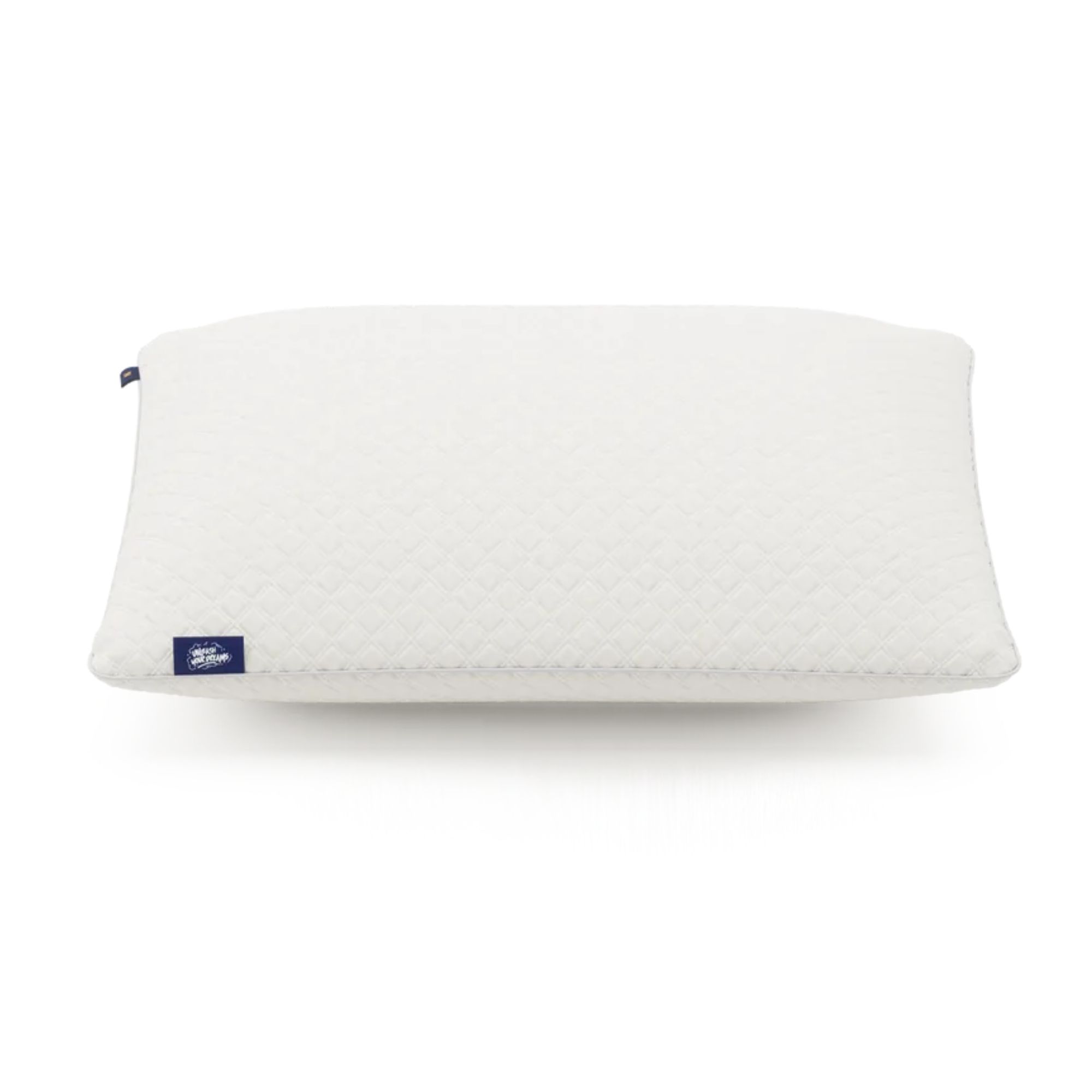
Sizes: Queen
Filling: Shredded foam
Firmness: Adjustable
Care: Spot clean or dry clean
The Nolah squish pillows are the perfect twin pack to stack. Thinner than most shredded foam pillows they're great for back sleepers who don't need too much height, but just enough to support the spine and neck. You can adjust to the right height for you.
FAQs
What is the healthiest sleep position?
Sleep specialists advise that sleeping on your side is the best sleep position. This is because it promotes healthy spinal alignment by keeping your knees, hips, and shoulders aligned. With the right mattress, it's pretty easy to keep your body both cushioned and supported. Sleeping on your side reduces pressure on the joints and allows your muscles to relax.
That being said, sleeping on your back is equally healthy as long as your neck is kept in the correct place – as if it is when you are standing up. Sleeping on your stomach is considered the worst position, as your neck is at an unnatural angle, and your shoulder can easily be out of line with the rest of your body.
How do you sleep if you don't have a pillow?
If you've found sleeping with a pillow is better for you, you might be wondering which is the best way to sleep. Investing in a good mattress is key if you've chosen to sleep without a pillow, or don't have one at the moment. You should make sure you're sleeping on a mattress that supports your back properly. A bad mattress and no pillow could lead to both back and neck aches. If you don't like a pillow, it's likely a firm mattress would be best for your needs.
If you find sleeping without a pillow to be better for you, and your neck, then you might also consider whether sleeping on the floor is better for your back. If you have serious back pain, however, this should always be discussed with a doctor.







